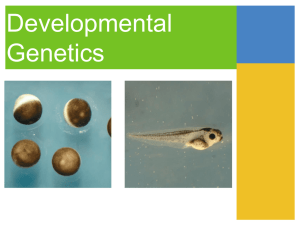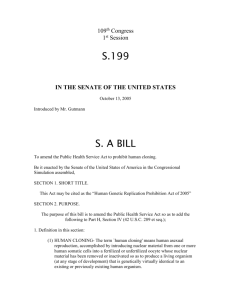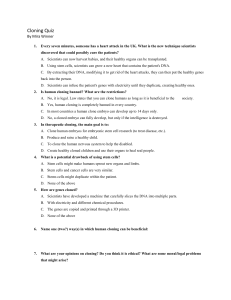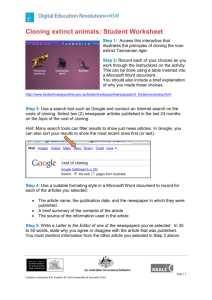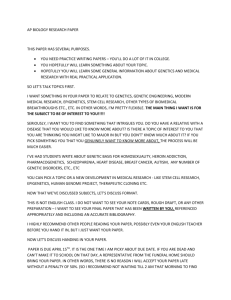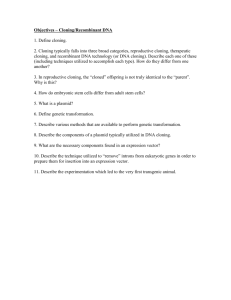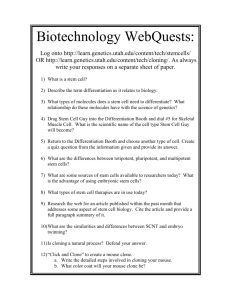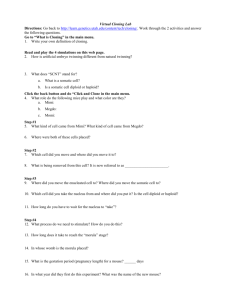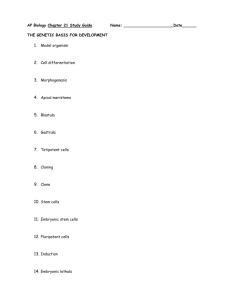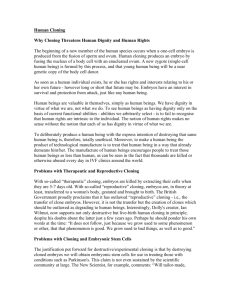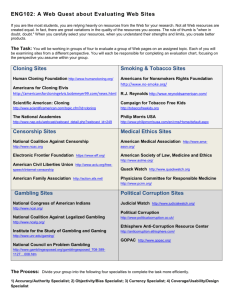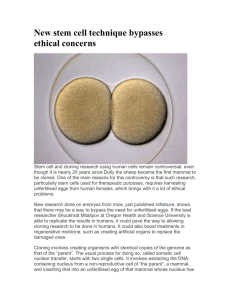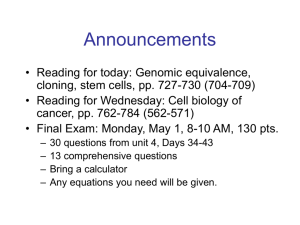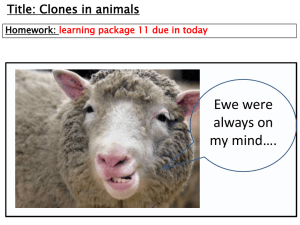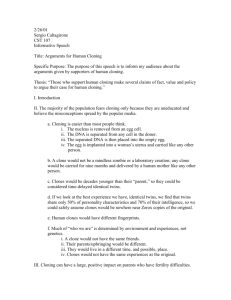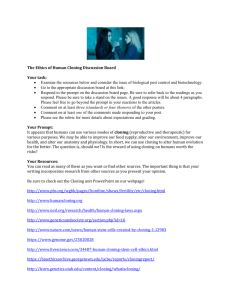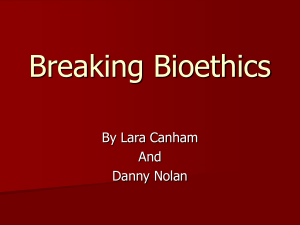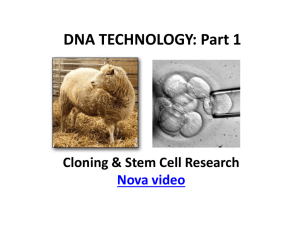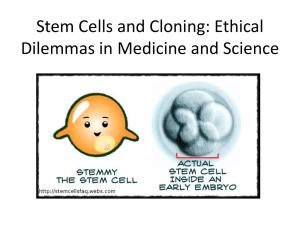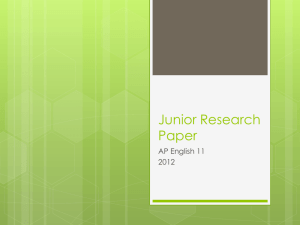Euthanasia
advertisement
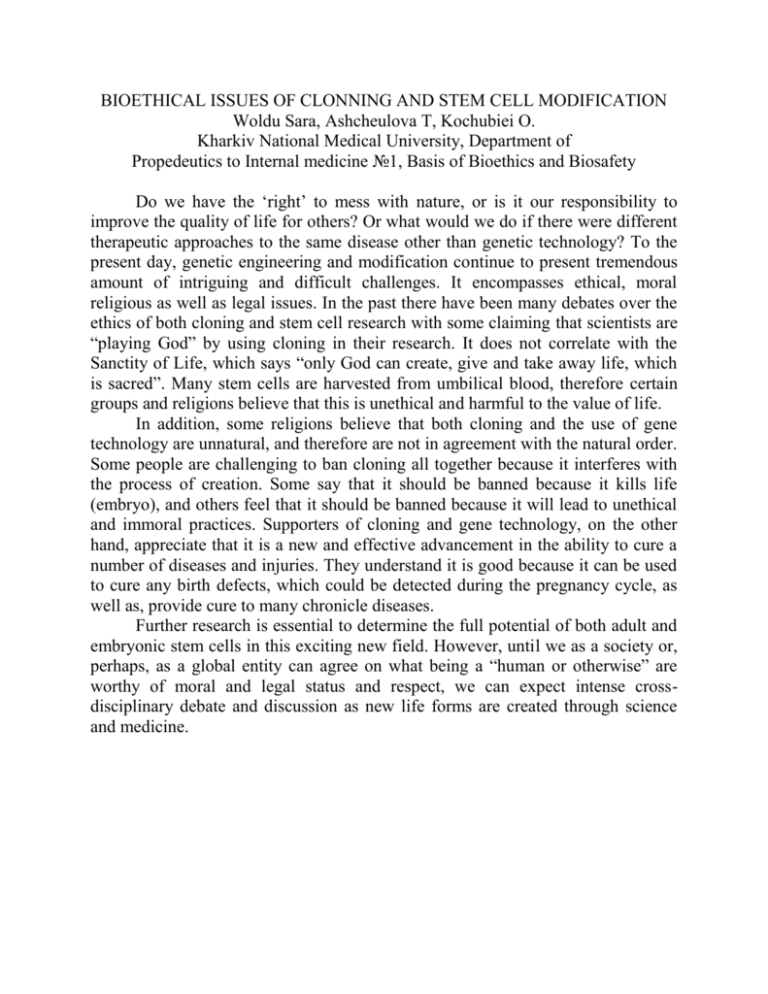
BIOETHICAL ISSUES OF CLONNING AND STEM CELL MODIFICATION Woldu Sara, Ashcheulova T, Kochubiei O. Kharkiv National Medical University, Department of Propedeutics to Internal medicine №1, Basis of Bioethics and Biosafety Do we have the ‘right’ to mess with nature, or is it our responsibility to improve the quality of life for others? Or what would we do if there were different therapeutic approaches to the same disease other than genetic technology? To the present day, genetic engineering and modification continue to present tremendous amount of intriguing and difficult challenges. It encompasses ethical, moral religious as well as legal issues. In the past there have been many debates over the ethics of both cloning and stem cell research with some claiming that scientists are “playing God” by using cloning in their research. It does not correlate with the Sanctity of Life, which says “only God can create, give and take away life, which is sacred”. Many stem cells are harvested from umbilical blood, therefore certain groups and religions believe that this is unethical and harmful to the value of life. In addition, some religions believe that both cloning and the use of gene technology are unnatural, and therefore are not in agreement with the natural order. Some people are challenging to ban cloning all together because it interferes with the process of creation. Some say that it should be banned because it kills life (embryo), and others feel that it should be banned because it will lead to unethical and immoral practices. Supporters of cloning and gene technology, on the other hand, appreciate that it is a new and effective advancement in the ability to cure a number of diseases and injuries. They understand it is good because it can be used to cure any birth defects, which could be detected during the pregnancy cycle, as well as, provide cure to many chronicle diseases. Further research is essential to determine the full potential of both adult and embryonic stem cells in this exciting new field. However, until we as a society or, perhaps, as a global entity can agree on what being a “human or otherwise” are worthy of moral and legal status and respect, we can expect intense crossdisciplinary debate and discussion as new life forms are created through science and medicine.

